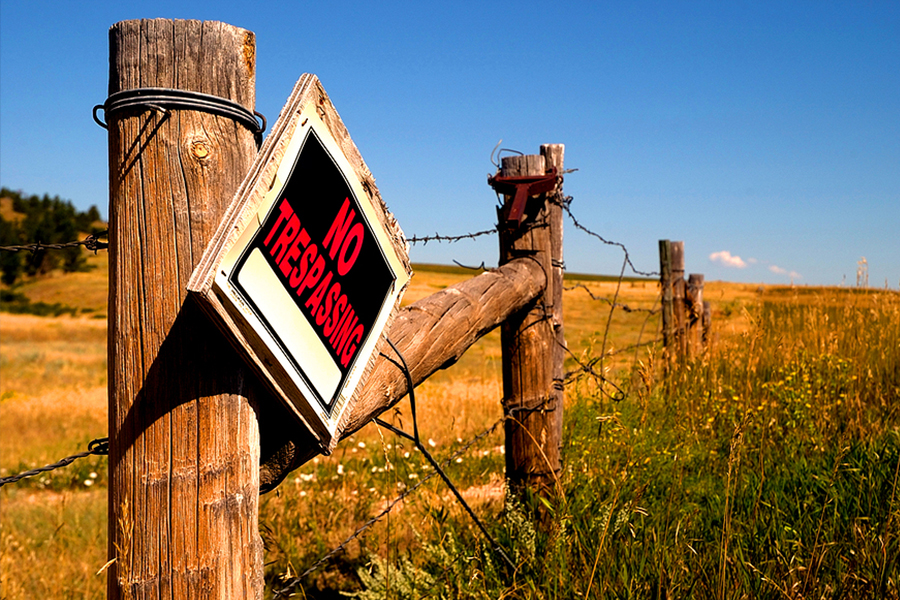Typically the crime of trespassing is committed by going on property belonging to another without permission. However, you might be surprised that in some situations one can be charged with trespassing on their own property.
The law recognizes various property rights. There is the right of title, ownership, or possession. It is possible for someone to have possession while another has ownership rights. A common example is the landlord-tenant situation. A landlord owns the property, which he leases to the tenant, but the tenant has the right of possession.
A person who owns and possesses property cannot be charged with the crime of trespass because he/she has permission to be there. However, a person that owns a property while another has possession of the property can be charged with trespassing on his or her own property in certain states.
Domestic Situations
The situation of trespassing on one’s own property often arises in domestic situations. Both husband and wife in most cases typically own a marital home. What happens if one spouse moves out? Often the most relevant issue focuses on whether one has permission to be on the premises. In some states, a person who does not currently live in the home can be charged with trespass or even burglary, despite the fact that they legally own or rent the home.
In some situations a court order, like a domestic violence protective order, can prohibit a person from entering the property (even if they own it) and under such circumstances any entry into the property will be made without permission.
Landlord/Tenant
Landlords may also be charged with trespassing on their property by failing to follow state laws intended to protect tenants. Most states require that a landlord give notice to a tenant prior to entering the premises. Without notice, or if done so for an unauthorized purpose, the landlord could subject himself to a trespass action.
Criminal Trespass
Criminal trespass statutes generally serve two purposes: to protect privacy and right to control the property and the items on it, and where there is insufficient evidence of criminal intent necessary for burglary charges.
Galveston Criminal Defense
The Texas Penal Code defines criminal trespass as when a “person enters or remains on or in a property of another, including residential land agricultural land, a recreational vehicle park, a building, or an aircraft or other vehicle, without effective consent and the person had notice that entry was forbidden or received notice to depart but failed to do so.”
 In Texas, the punishment for criminal trespass can vary from a Class C misdemeanor up to a Class A misdemeanor. The classification of an offense depends on the circumstances of each case. It is important to understand what actions constitute a criminal trespass and the possible defenses one might have as a property owner.
In Texas, the punishment for criminal trespass can vary from a Class C misdemeanor up to a Class A misdemeanor. The classification of an offense depends on the circumstances of each case. It is important to understand what actions constitute a criminal trespass and the possible defenses one might have as a property owner.
Whatever your situation is, if you’ve been charged with criminal trespass in the Galveston area and have questions, Galveston criminal lawyer Tad Nelson has answers. Our experienced attorneys can assist you.
Give our office a call today at 409-765-5614.














